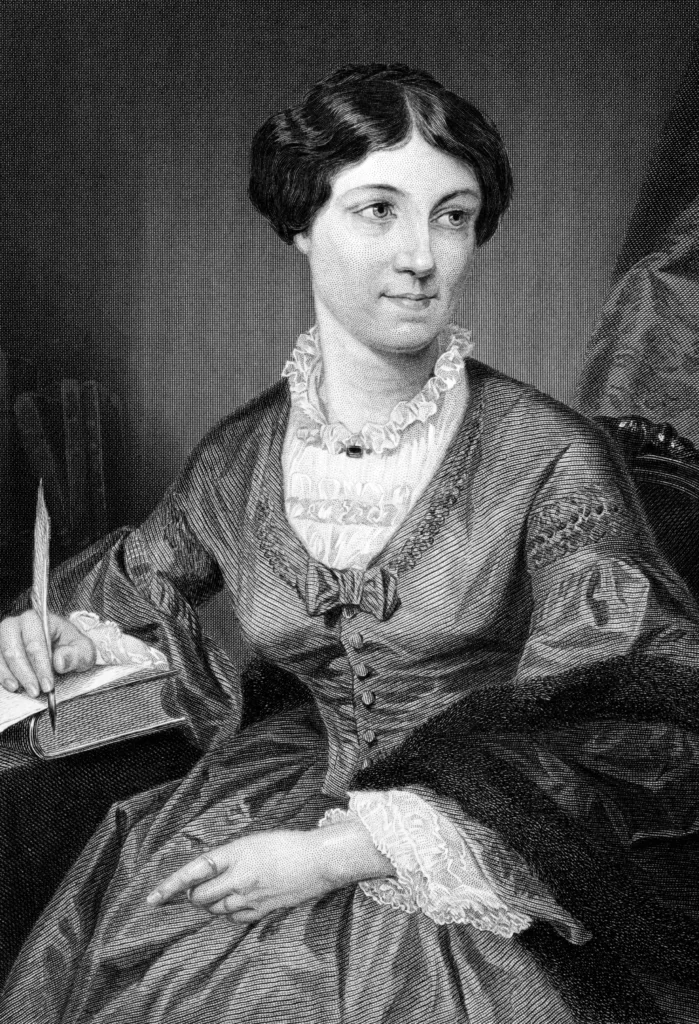The world that Harriet Martineau (1802-1876) was born into was one that expected women to stay at home, while men tended to more intellectual and economic concerns. This quite rightly was not acceptable to the young Harriet who addressed this entrenched social injustice in her article ‘On Female Education’ Unitarian Monthly Repository [5, 15], the first of many articles and books that challenged the status quo. Later while living in London, she published ‘Illustrations of Political Economy’, which ran to 25 volumes and even outsold several of Dickens’ novels. Harriet followed this with ‘Poor Laws and Paupers Illustrated and Illustrations of Taxation’.
Harriet Martineau was born into a family of Norwich Unitarians, who were Dissenters. Dissenters rejected god as a trinity, favouring a less dogmatic religion in which conscience is important. You will find references to the family all around Norwich, or Martineau Memorial Hall and Sunday School in Colegate but these commemorations refer to the achievements of the male side of the Martineau family. Harriet eventually came to renounce religion, supporting the idea of then radical Charles Darwin. Her lack of recognition is rather surprising considering she is now widely considered to be a pioneer of and the first female sociologist. She is also considered to be one of the first women journalists, having earned her living by her pen since her twenties and joining the staff of The Daily News in 1852.
Harriet spent two years travelling in the 1830s, deciding to observe the new democracy of the United States. These experiences were published in Society in America (1837) in which she was outspoken in her call for racial equality and – concerned about the lack of education for American women. Charles Dickens to say of her that she was ”grimly bent upon the enlightenment of mankind”. There is one somewhat hidden spot in Norwich that for those who wish to recognise this forward-thinking woman. If you visit Gurney Court, Harriet’s name can be glimpsed though the bars of the gated alleyway to Gurney House in Magdalen Street, where Elizabeth Fry had been born. Clearly this woman remains unfairly hidden behind her male family members.
